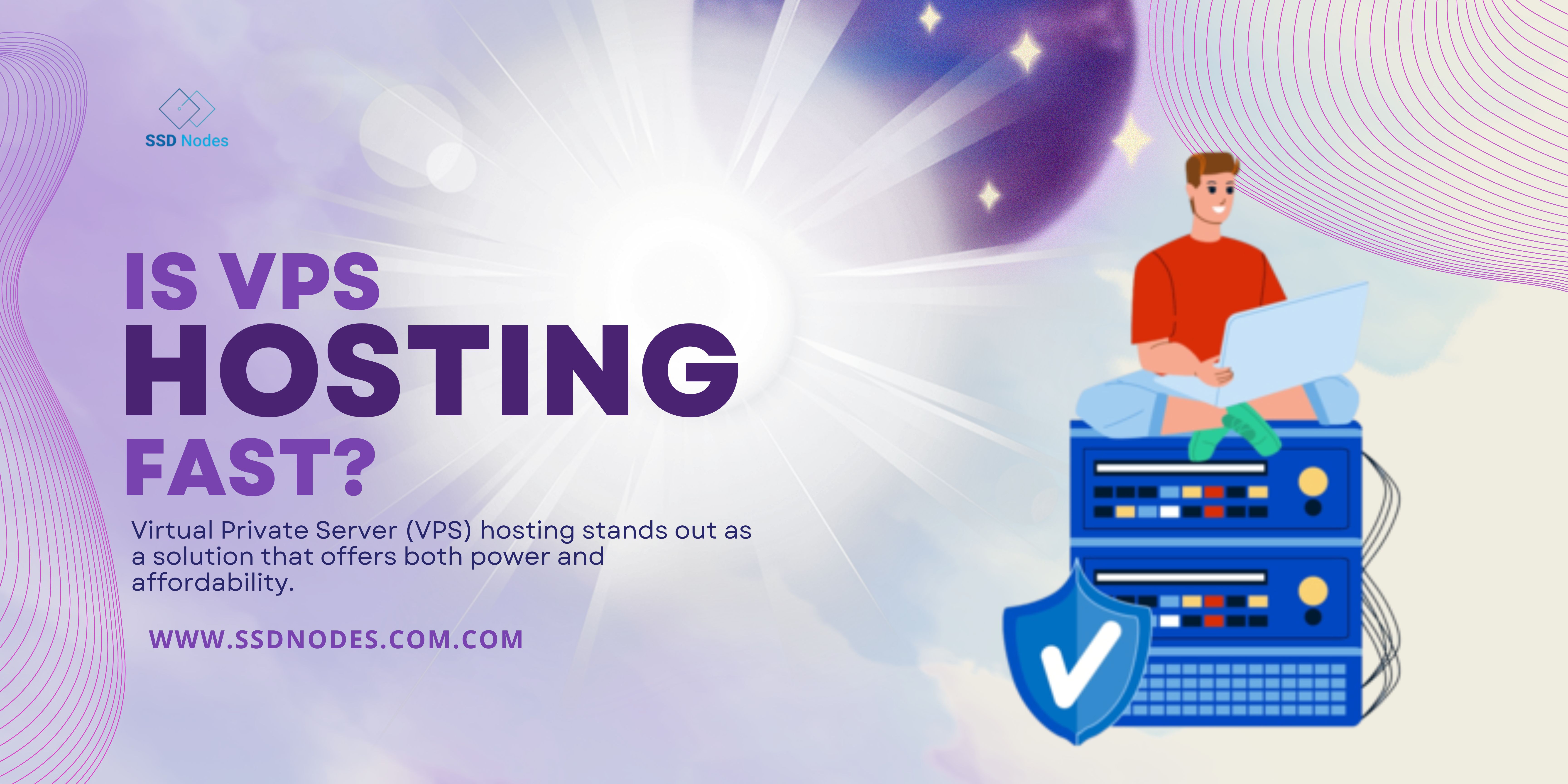Is VPS Hosting Fast ?
 SSD Nodes
SSD Nodes
When it comes to hosting a website or application, speed is crucial. Fast page load times can improve user experience, boost SEO rankings, and increase conversion rates. Among various hosting options, Virtual Private Server (VPS) hosting stands out as a solution that offers both power and affordability. But is VPS hosting genuinely fast, and what influences its speed? Let’s explore.
1. What Is VPS Hosting?
Definition: Explain how VPS hosting creates a virtual environment on a physical server, offering users dedicated resources.
Comparison with Shared Hosting: Highlight the difference in performance between VPS and shared hosting, where resources are shared among many users.
2. Key Factors That Impact VPS Hosting Speed
Resource Allocation: Dedicated CPU, RAM, and storage resources in a VPS environment mean fewer bottlenecks compared to shared hosting.
SSD Storage: VPS plans with SSD (Solid State Drive) storage offer faster data retrieval, which significantly boosts website speed.
Virtualization Technology: How KVM, Xen, and other virtualization technologies optimize speed and performance.
Server Location: The closer the server is to your target audience, the faster the load times. Many VPS providers offer multiple data center locations to choose from.
Network Bandwidth: VPS providers with higher bandwidth offer quicker data transfer rates, improving site loading times.
3. VPS Hosting vs. Other Hosting Options
Shared Hosting: VPS hosting is generally faster as it provides dedicated resources rather than sharing them.
Dedicated Hosting: While dedicated hosting can offer more raw power, VPS is often more than sufficient and more cost-effective for many users.
Cloud Hosting: Compare how VPS fares against cloud hosting in terms of speed and scalability, noting that VPS often has predictable performance due to dedicated resources.
4. Advantages of Choosing VPS Hosting for Speed
Reduced Latency and Faster Loading Times: With optimized resources, websites and apps load faster.
Scalability: You can upgrade resources on-demand, avoiding the performance drop-offs common with fixed-resource hosting plans.
Control Over Server Environment: Users can configure server settings, optimizing for performance based on specific needs (e.g., caching, server-side optimizations).
5. Tips to Maximize VPS Hosting Speed
Optimize Your Content: Use caching, compress images, and reduce large files.
Leverage CDN: Content Delivery Networks can speed up delivery across different locations.
Choose the Right VPS Plan: Assessing your site's needs and picking the appropriate CPU, RAM, and bandwidth can ensure you have adequate speed without overpaying.
Regular Maintenance: Regularly check for software updates and optimize databases to prevent lag.
6. Is VPS Hosting Right for Your Speed Needs?
- Conclude with advice on choosing VPS if you require a balance of speed, control, and affordability, and highlight SSD Nodes offers powerful, feature-packed VPS solutions designed for performance.
Subscribe to my newsletter
Read articles from SSD Nodes directly inside your inbox. Subscribe to the newsletter, and don't miss out.
Written by

SSD Nodes
SSD Nodes
A Linux cloud server, such as the ones offered by SSD Nodes, provides professional-grade reliability and scalability for businesses and individuals alike. With SSD Nodes' superior performance, users can experience lightning-fast speeds for their cloud applications and websites. Utilizing a Linux-based infrastructure allows for robust security measures and flexibility in customization, catering to the specific needs of each user. By choosing a Linux cloud server from SSD Nodes, you can trust in a reliable and secure hosting solution that meets the demands of your professional endeavors.